
Joan Chandos Baez is an American singer, songwriter, musician, and activist. Her contemporary folk music often includes songs of protest and social justice. Baez has performed publicly for over 60 years, releasing more than 30 albums. Fluent in Spanish and English, she has also recorded songs in at least six other languages.
"All My Trials" is a folk song which became popular during the social protest movements of the late 1950s and 1960s. Alternative titles it has been recorded under include "Bahamian Lullaby" and "All My Sorrows." The origins of the song are unclear, as it appears to not have been documented in any musicological or historical records until after the first commercial recording was released on Bob Gibson's 1956 debut album Offbeat Folksongs.

"The Night They Drove Old Dixie Down" is a song written by Robbie Robertson and originally recorded by the Canadian-American roots rock group the Band in 1969 and released on their eponymous second album. Levon Helm provided the lead vocals. The song is a first-person narrative relating the economic and social distress experienced by the protagonist, a poor white Southerner, during the last year of the American Civil War, when George Stoneman was raiding southwest Virginia. The song appeared at number 245 on Rolling Stone magazine's list of the 500 greatest songs of all time.
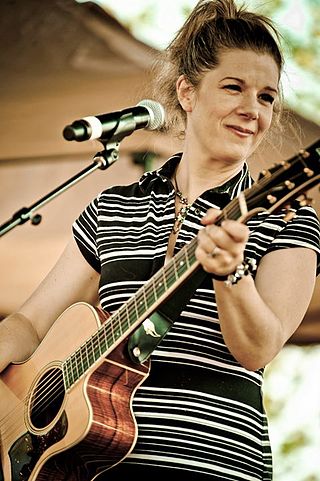
Dorothy Snowden "Dar" Williams is an American pop folk singer-songwriter from Mount Kisco, New York. Hendrik Hertzberg of The New Yorker has described Williams as "one of America's very best singer-songwriters."

Joan Baez, also known as Joan Baez, Vol. 1, is the debut solo album by folk singer Joan Baez. The album was recorded in the summer of 1960 and released the same year. The original release featured 13 traditional folk songs. Later reissues included three additional songs.
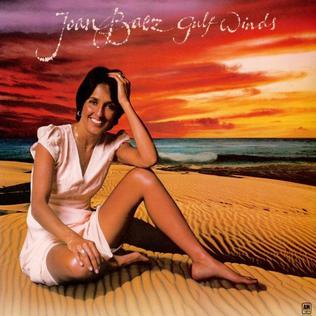
Gulf Winds is the seventeenth studio album by Joan Baez, released in 1976. It was her final album of new material for A&M. Baez stated in her autobiography, And a Voice to Sing With, that most of the songs were written while on tour with the Rolling Thunder Revue with Bob Dylan. "O Brother!" was a clever reply to Dylan's song "Oh Sister". On the title song, a ten-minute long autobiographical recollection of her childhood, Baez accompanies herself only with her own acoustic guitar, creating a sound reminiscent of her earliest pure folk recordings.

Play Me Backwards is an album by the American musician Joan Baez, released in 1992. The album was nominated for a Grammy for Best Contemporary Folk Recording. Baez supported it with an international tour.
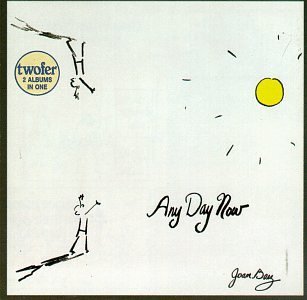
Any Day Now is the ninth studio album by Joan Baez, released as double LP in 1968 and made up exclusively of Bob Dylan songs. It peaked at number 30 on the Billboard Pop Albums chart.

Joan Baez in Concert is a live album taken from Joan Baez's 1962 concert tours. It peaked at #10 on the Billboard Pop Albums chart.
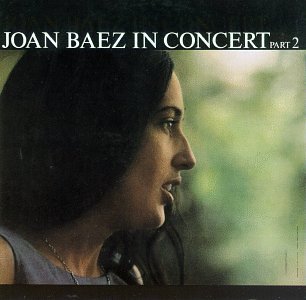
Joan Baez in Concert, Part 2 was a second installment of live material, recorded during Joan Baez' concert tours of early 1963. It peaked at number 7 on the Billboard Pop Albums chart.
"Man of Constant Sorrow" is a traditional American folk song first published by Dick Burnett, a partially blind fiddler from Kentucky. The song was originally titled "Farewell Song" in a songbook by Burnett dated to around 1913. A version recorded by Emry Arthur in 1928 gave the song its current titles.
"It's All Over Now, Baby Blue" is a song written and performed by Bob Dylan and featured on his Bringing It All Back Home album, released on March 22, 1965, by Columbia Records. The song was recorded on January 15, 1965, with Dylan's acoustic guitar and harmonica and William E. Lee's bass guitar the only instrumentation. The lyrics were heavily influenced by Symbolist poetry and bid farewell to the titular "Baby Blue". There has been much speculation about the real life identity of "Baby Blue", with possibilities including Joan Baez, David Blue, Paul Clayton, Dylan's folk music audience, and even Dylan himself.
"Diamonds & Rust" is a song written, composed, and performed by Joan Baez. It was written in November 1974 and released in 1975.
"Sweet Sir Galahad" is a song written by Joan Baez that she famously performed at the Woodstock Festival in August 1969, after having debuted it during an appearance in a Season Three episode of The Smothers Brothers Comedy Hour, which aired on March 30, 1969. A recording of the song, first released as a single in late 1969, would lead off Baez's 1970 album One Day at a Time.
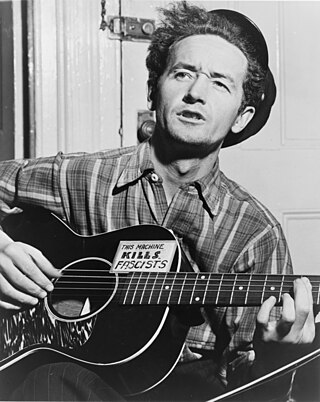
The American folk music revival began during the 1940s and peaked in popularity in the mid-1960s. Its roots went earlier, and performers like Josh White, Burl Ives, Woody Guthrie, Lead Belly, Big Bill Broonzy, Richard Dyer-Bennet, Oscar Brand, Jean Ritchie, John Jacob Niles, Susan Reed, Paul Robeson, Bessie Smith, Ma Rainey and Cisco Houston had enjoyed a limited general popularity in the 1930s and 1940s. The revival brought forward styles of American folk music that had in earlier times contributed to the development of country and western, blues, jazz, and rock and roll music.
Celebration at Big Sur is a film of the 1969 Big Sur Folk Festival in Big Sur, California, featuring Crosby, Stills, Nash and Young, Joan Baez, Joni Mitchell and others.
"There but for Fortune" is a song by American folk musician Phil Ochs. Ochs wrote the song in 1963 and recorded it twice, for New Folks Volume 2 and Phil Ochs in Concert. Joan Baez also recorded "There but for Fortune" in 1964, and her version of the song became a chart hit.

Whistle Down the Wind is the 26th studio album by American folk singer and musician Joan Baez, released on March 2, 2018, her first studio album in almost a decade. The album features songs written by such composers as Tom Waits, Josh Ritter and Mary Chapin Carpenter. Joe Henry produced the album.
Circuladô is an album by the Brazilian musician Caetano Veloso. It was released in 1991. Circuladô was Veloso's third album to be widely distributed in the United States.
Destiny's Gate is an album by the American musician Tish Hinojosa, released in 1994. Hinojosa intended the album to incorporate "polished" country and pop, while retaining her Rounder Records contract for music that was in the traditional Tex-Mex border style.











